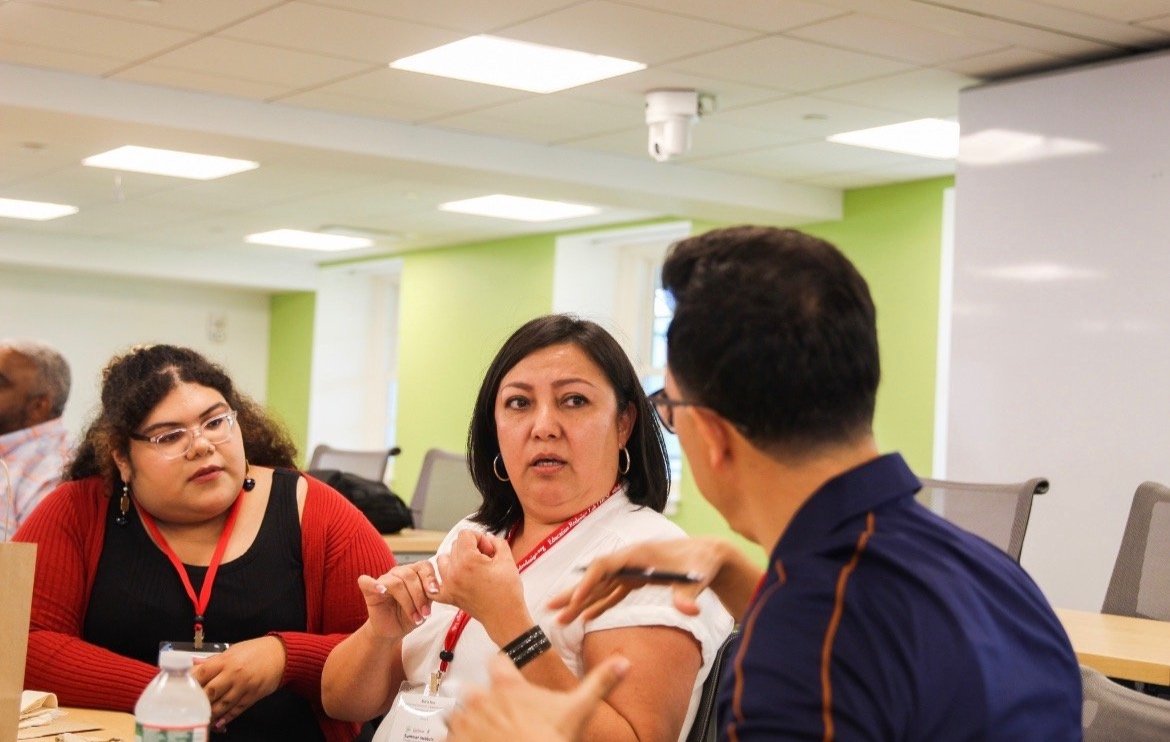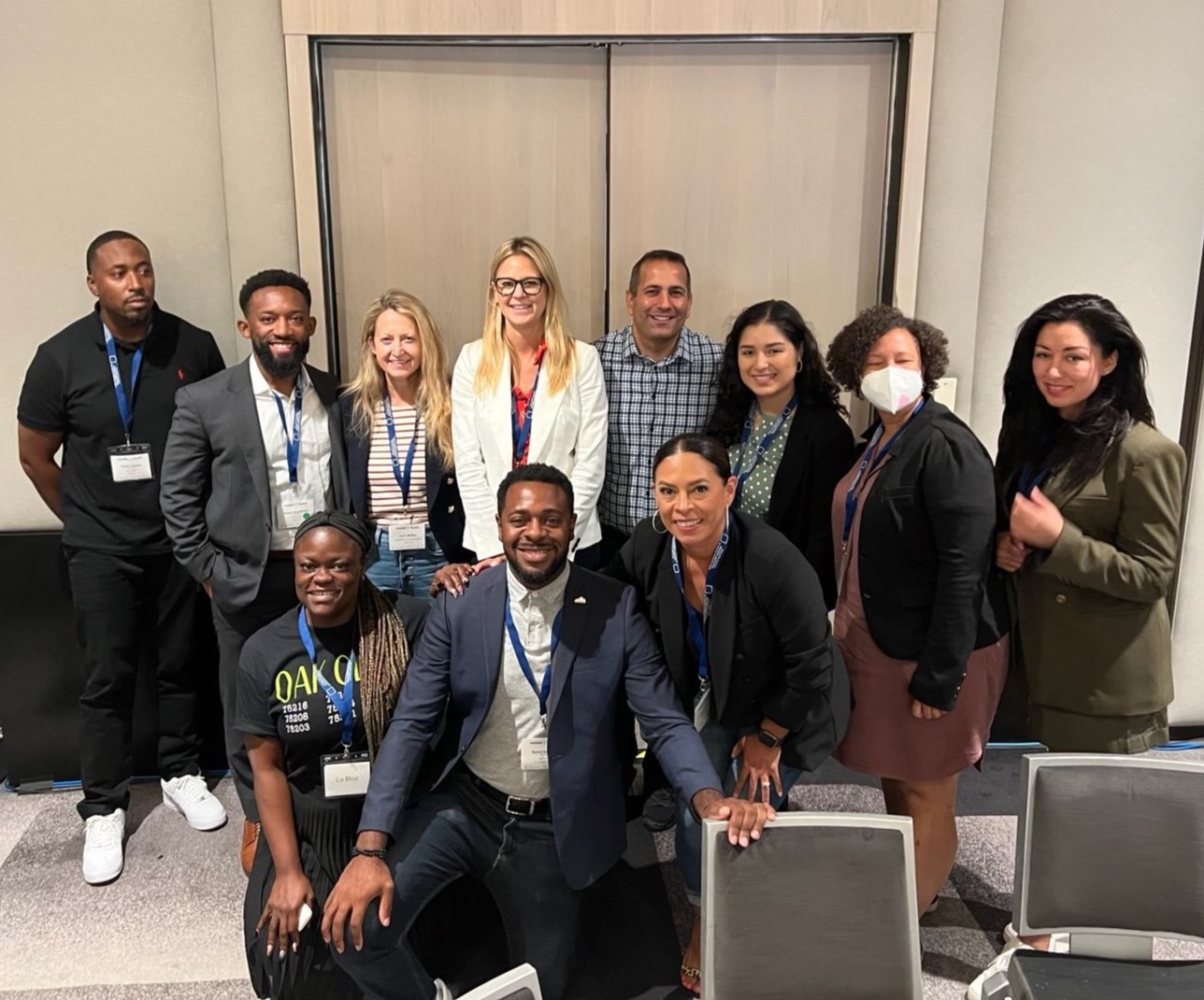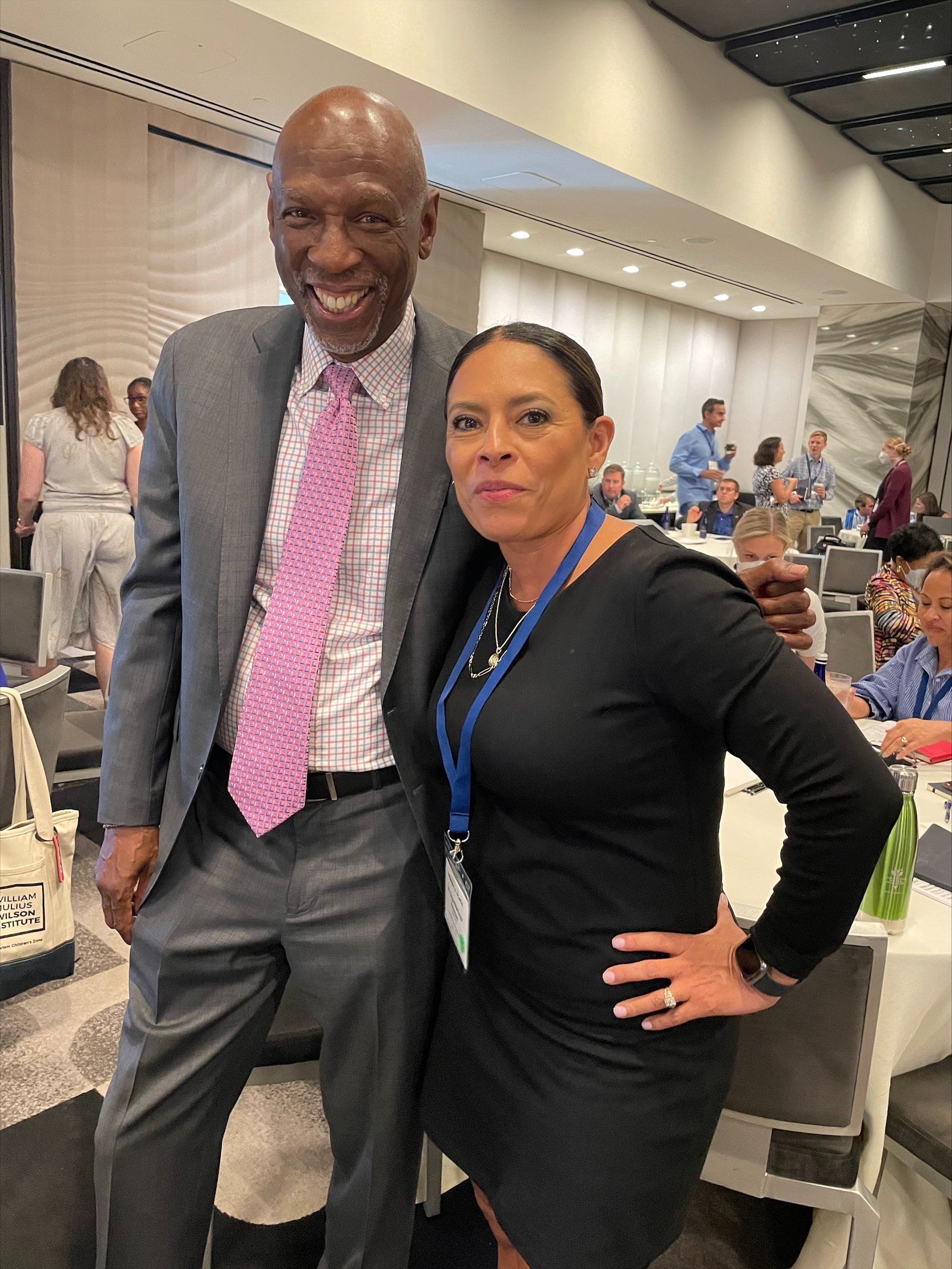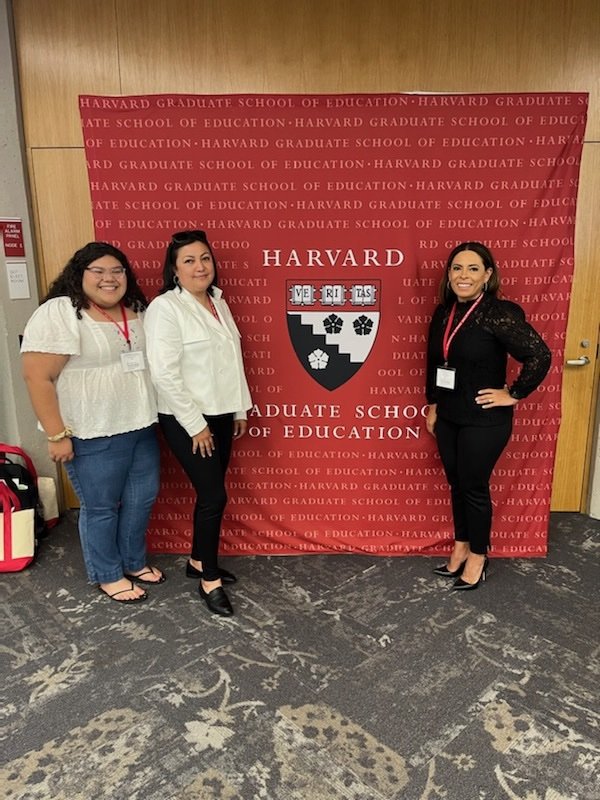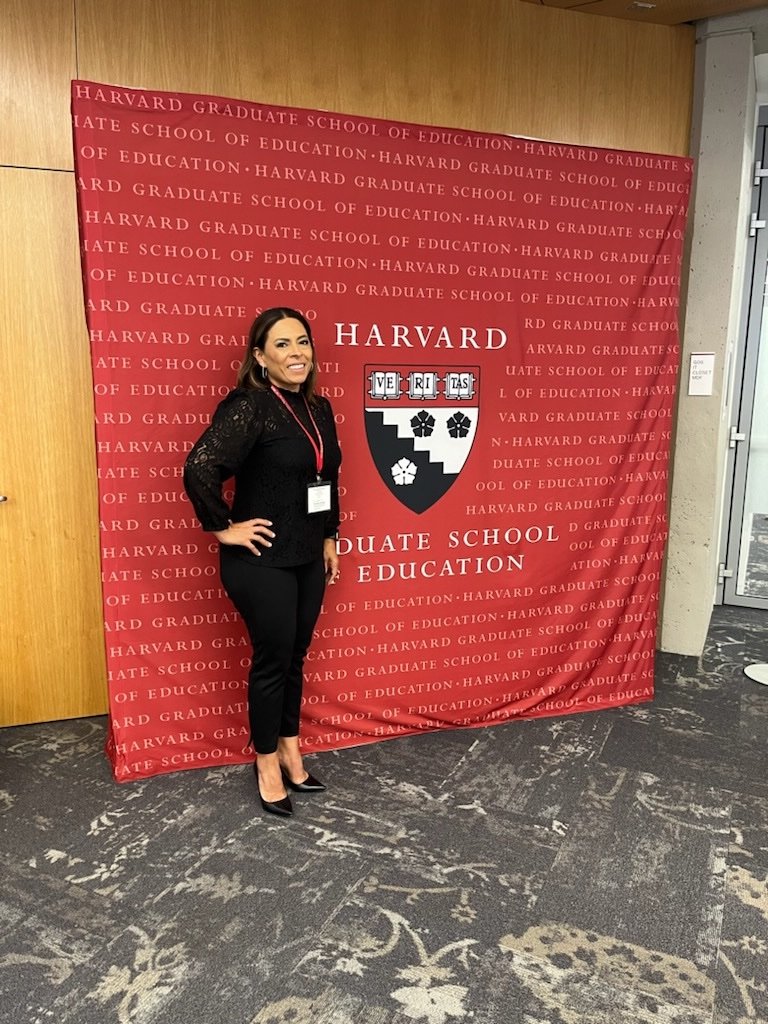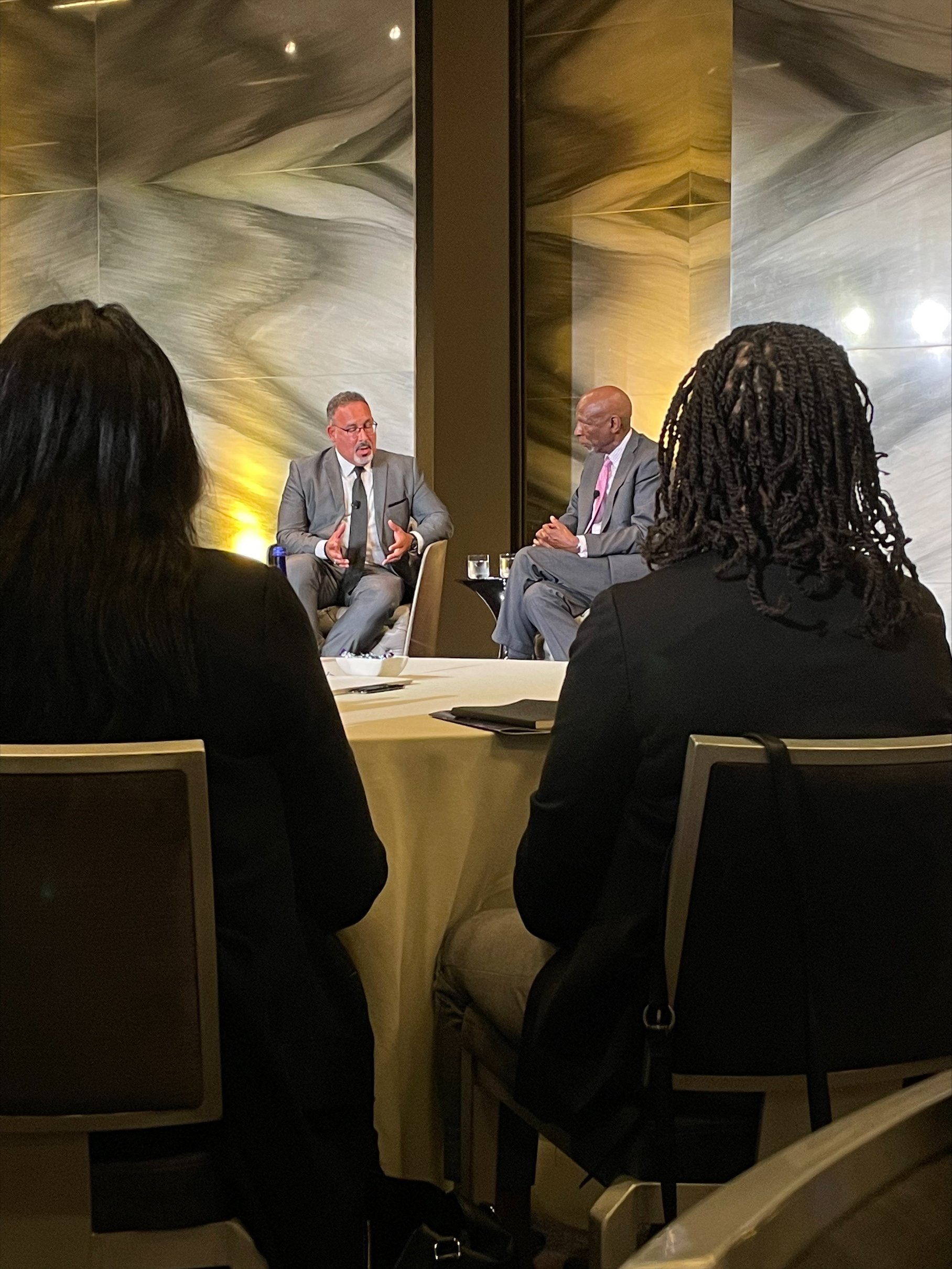Investing in Neighborhoods: A Reflection
Dr. Olga Martinez Hickman
Growing up in poverty has shown to have lifelong consequences for individuals, and society as a whole. Although I grew up in a neighborhood that continues to be impoverished and neglected, I never realized I was growing up with less. The elementary school I attended was just a few hundred feet away from the home my parents still live in today, I got to walk to school with all my friends, and all but one of my teachers looked and spoke like me. Although my teachers didn’t live in the impoverished Mexican neighborhood, known as Monterreyito, we knew we were their children.
As a woman of color, grim stats have always tried to be used to define kids like me. I was either going to drop out of school or become a teenage mother. Nobody who looked at my life from the outside-in would have ever thought, she’s going to get a Ph.D. one day. Besides the ESL classes that forced me to learn to hate Spanish, I am unable to recall any systems that were designed to create opportunities for upward economic and educational mobility for my community. Sure, there were programs - but those were more like band-aids. Those band-aid programs, like any band-aid, can easily rip off; the focus was never centered around long-term, equitable solutions. The only constant support we knew of were the cultural values instilled by our parents and the educational investment from our teachers.
As a former reading teacher, I studied the work of Geoffrey Canada, educator and activist, for years. I admired his tenacity in advocating for transformation of a community that's been historically ignored through his work at Harlem Children's Zone. When I watched Waiting for Superman, I was even more attracted to the idea of how much investing in place matters. When I taught, I went back to teach 4th grade reading at Pearson Elementary School, the school I attended as a little girl. My students knew where I lived, and sometimes I would even walk to school with them. I was a part of their community. To me, it was important that the children knew that it was OK to leave home to receive an education, but that coming back was just as important. Like me, the children needed to see adults that looked like them in the educators that were shaping their lives—which is a cornerstone of the work of the Harlem Children’s Zone.
Earlier this spring, my team and I had an opportunity to explore “place” through the lens of the work at The Harlem Children’s Zone Practioners Institute. We were immersed in what “place-based” means, why it is imperative to invest in communities, and how this work is transformative for children and families — when done with intention. We spent time visiting classrooms, engaging with leaders at all levels, and gaining perspective from everyone involved, including students. Everything I observed was intentional. I equated the intentional, equitable, investment that is poured into every child, to all that I pour into my own children. I witnessed some very dedicated adults from the community itself changing the odds for neighborhood children. Its success is a result of an extremely focused, outcome-driven system, designed to ensure success for the entire community.
That amazing experience was followed by more learning! Our team was invited to engage with other place-based leaders from across the country at the Power of Place: A Gathering of Leaders, hosted by the William Julius Wilson Institute (WJWI) at Harlem Children’s Zone (HCZ). There, we aligned on the importance of community-based, cradle-to-career strategies and the power in investing in our most vulnerable neighborhoods.
Summer came to an end for me doing what I love doing best, delving deeper into research, policy and practice at Transforming Place Through Neighborhood Leadership, a five-day summit co-sponsored by the EdRedesign Lab at Harvard Graduate School of Education and the William Julius Wilson Institute at Harlem Children’s Zone. Our team joined leaders from 17 place-based organizations from across the country, as we immersed in research and critical issues facing community-based organizations, through sessions focusing on organizational finance, federal grants, neighborhoods as a unit for change, racial equity, and much more.
While the link to “place”—community, neighborhood, and culture—has been an impetus for me professionally, it is also very personal. I am extremely fortunate to serve a community that is very similar to the one I grew up in — the one I still get to call home when I visit my parents a couple of times a year. Our vision for strengthening Bachman Lake Together is inclusive of investing in the community as a whole. Yes, we want our youngest learners to be ready for kindergarten, but we also know that they don’t drive themselves to school and there are barriers that exist beyond the classroom. Place-based strategies strengthen the physical, social, structural and economic conditions of a community affect more than kindergarten readiness—the well-being of the children, families and all individuals who live in the community we serve. We want the first five formative years of a child’s life to be the launching pad to the future, creating opportunities for children and families to excel academically, socially and emotionally—so they can thrive in school and in life.
At a time when systemic inequities have been heightened in distressed vulnerable communities, like in Bachman Lake, we can come together for change. The national expertise of HCZ, WJWI and EdRedesign Lab, coupled with philanthropic and social sector partners allowed us to engage with some of the hardest working leaders in the country. As we embark on the 2022-2023 school year, I am reminded that there is no time to waste. The last two years may have pushed us back, but together, we keep pushing forward. Changing the odds for the children of Bachman Lake, Dallas, and North Texas requires all of us to become more invested in the communities we serve. I invite you to learn more about the work of Bachman Lake Together. You can help other women and children of color break through and live through their fullest potential. Come by for a visit, meet some of the amazing people in our community, or volunteer. Champion this work in whatever capacity you can. And if I may leave you with only one thing, always remember this: place matters!

